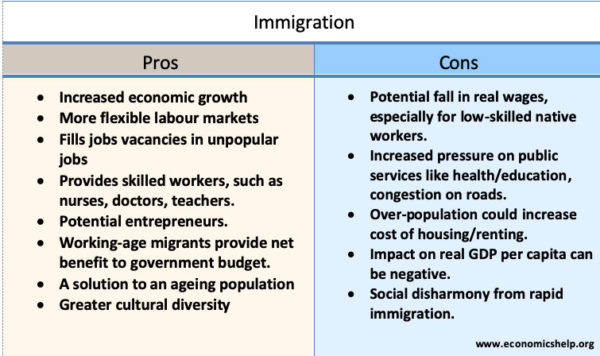Want to make a difference—and have a lasting career—as an immigration lawyer? Keep reading for answers to frequently asked questions about this rewarding legal specialty.
First things first…

Who might be interested in immigration law?
Does the thought of working on human rights issues excite you? Do you like interacting with people from other countries and cultures? Are you interested in criminal law, constitutional law, civil rights law, family law, education law, entertainment law, sports law, compliance, or business law? Do you hope to be a transactional lawyer or litigate in federal court?
If any of the above apply to you, you are likely to benefit from studying immigration law. Why? Because immigration law provides you with a foundation to represent people who have immigration matters to resolve, but it also allows you to recognize how a person’s immigration status might impact them in many seemingly unrelated ways.
What do immigration lawyers do?
The immigration issues that have seen intense political debate and media coverage in recent years are only part of the story.
The United States sees a constant influx of people hoping to live, work, and study within its borders, and immigration lawyers can help individuals, families, and businesses navigate those various and often complex immigration pathways. A person’s immigration status might impact and intersect with other legal matters too, such as family law, criminal law, business, and tax law, and is well versed in immigration law is necessary for attorneys practicing in those areas as well.
Immigration lawyers may represent clients in administrative courts, or they may counsel clients about their legal rights and obligations related to immigration, among other things. They also suggest courses of action based on their knowledge of immigration law.
For example, immigration lawyers might help citizens of other countries through the process of gaining legal status to work in the United States with the H-1B visa program. This program provides a framework for American employers to hire non-U.S. citizens in jobs where their skills are needed. Individuals hoping to come to the United States to fill such positions must gain approval through a complex and often intimidating process. They (or often the employers hoping to hire them) often turn to immigration lawyers, who provide assistance in completing forms and taking other required steps. The lawyers may also represent clients in dealing with government officials in matters related to the visa application.
You can find immigration lawyers in various legal settings as well, from large law firms to smaller practices that include or specialize in immigration law, to government agencies to nonprofit organizations. (Every world-class performer or athlete has an immigration attorney behind them, advising on and securing necessary visas!) Some immigration attorneys provide services through a nonprofit or public interest law fair. Or they may prepare correspondence, meet with government officials, make presentations, and advise staff and volunteers, among other duties.
Finally, highly experienced immigration lawyers may pursue other career interests, such as teaching immigration law in law schools. Many universities have an immigration attorney on staff to advise incoming students and faculty as well. Other possibilities include becoming an immigration judge, a legislative aid (every member of Congress has an immigration advisor on staff), or an appointed or elected official.
Even criminal lawyers would be well-advised to understand immigration law, as they can be professionally sanctioned for failing to properly advise non-citizen clients of the immigration consequences of convictions, pleas, and sentences.
At the end of the day, immigration law can be a strong fit to students interested in human rights and international law, as well as those interested in business law or criminal law.
How can you become an immigration lawyer?

Regardless of the eventual practice area, completing a bachelor’s degree is the usual first step in becoming a lawyer, followed by earning a juris doctor (JD) degree.
A law school concentration or specialization in immigration law will help bolster your expertise in this specialty and give you an advantage in the field, though it is not technically necessary to practice. Rather, employers and clients will be looking for lawyers with ample exposure to the immigration field, particularly hands-on legal experience through clinics, legal internships, externships, clerkships, pro bono activities, and more, as well as through their law school course work.
A career in immigration law, as with most legal areas, also requires certain skills. High-level capabilities in reading and writing are a must, as is the ability to understand and communicate complex concepts and advocate for your client in an adversarial setting. Law schools both seek out these skills in applicants and cultivate them in their students.
In many situations, strong interpersonal skills are also needed. During any given day in immigration practice, an attorney may work with people who have undergone exceptionally traumatic experiences, including suffering persecution, human trafficking, or torture. The ability to communicate with compassion may be especially important in dealing with immigrants and immigrant families, who may need reassurance as well as technical assistance in dealing with the legal complexities of immigration.
If you’re not in law school yet…
If you’ve yet to enter law school (whether you’re an undergrad student, a working professional, or even still in high school), there are things you can do now to prepare yourself for the legal education ahead and your future career as an immigration lawyer.
Common undergraduate majors for students considering law school include political science, history, philosophy, economics, social sciences, language studies, and business—but no specific major is required. Even fields like nursing or engineering can serve as “pre-law” majors.
The American Bar Association (ABA) advises anyone interested in a legal career, regardless of the chosen specialty, to pursue educational, extracurricular, and life experiences that will foster the strengths and abilities needed for success in the legal world. Among them are analytical thinking, problem-solving, critical reading, writing and editing, oral communication, listening skills, and research.
The ABA also recommends getting involved in pursuits related to public service, promotion of justice, relationship-building, and collaboration. So seek out part-time or summer jobs, internships, or volunteer activities if you can. For instance, interning with a law firm that specializes in immigration issues can provide a first-hand look at the work involved while helping you polish relevant workplace skills. Such “real world” experiences can also help you assess the pros and cons of working in this field without making the commitment of full-time employment after law school. It will also provide a knowledge base you can build on later if you choose to pursue a career in immigration law.
The same can be said for gaining experience in a social outreach organization, business that relies on non-citizen employees, or government office that deals with immigration. If a direct connection with immigration is not available, any paid or volunteer activity that involves public speaking, writing, research, or other skills valued in the legal profession could be worth pursuing.
If you’re already in law school…
Once in law school, you’ll complete a combination of required courses and electives that match your individual interests and future aspirations. These may include courses or even concentrations or certificates in immigration law or related areas, which provide a vital academic foundation for a career in this specialty.
In addition to academics, and as noted above, you should also pursue as many opportunities to gain hands-on experience in the legal field as you can, particularly in immigration law–related work. You might find such opportunities through the clinical programs, pro bono activities, internships/externships, and student groups offered by your law school.
For most people planning to practice law, including immigration law, the JD is the standard degree. But some law school graduates go on to pursue other degrees or credentials requiring additional study, such as the Master of Laws (LLM) or the Doctor of Science of Law/Doctor of Juridical Science (JSD or SJD). Advanced degrees are generally pursued by those who hope to teach law or conduct scholarly research.
What does immigration law pay?
It’s no secret that legal careers tend to pay well, though individual lawyers’ salaries can vary considerably, even within the same legal specialty, like immigration law. The services you offer, clientele you serve, and area of the country you practice in can all affect earning potential.
According to the U.S. Department of Labor, the median annual wage for all lawyers is about $120,000. Median salaries top $140,000 for those employed by the federal government, while pay for state and local government ranges from $85,000 to $93,000 annually. Lawyers employed by large, successful law firms or big corporations tend to earn more than those who own their own practices or work for nonprofit organizations.
Earnings for some lawyers who specialize in immigration may be lower than the average for lawyers in general. An attorney who accepts a position with a small immigration nonprofit, for example, may choose that option with the understanding that while the salary is lower than average, the work offers the opportunity to serve people in life-altering situations who lack the resources to obtain legal assistance otherwise. Not to mention the satisfaction rates are consistently higher for public interest lawyers. Many immigration lawyers go into solo practice as well.
Where can I learn more?

There are certainly plenty of online resources to help you learn more about becoming an immigration lawyer; however, you may find it’s helpful to start by connecting with people in the field. This might mean conducting an informational interview with a working immigration lawyer, perhaps through your undergraduate institution (ask the career or alumni offices at your school). Conversations with law school representatives can also be revealing, and it’s often easy to contact law school admissions folks and even professors directly. You might also get a chance to chat about immigration law at a law school fair.
Another helpful resource is the American Immigration Lawyers Association, a national organization of more than 15,000 attorneys and educators who practice and teach immigration law. This nonpartisan nonprofit provides continuing legal education, information, and professional services. Its goals are to promote justice, advocate for fair and reasonable immigration law and policy, advance the quality of immigration and nationality law and practice, and enhance the professional development of its members.
As you explore immigration law through these and other resources, you may find it offers the right career potential for you.



















